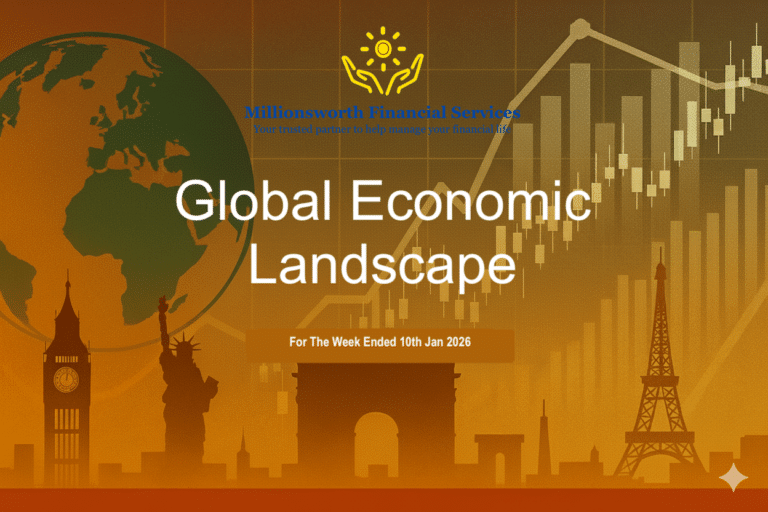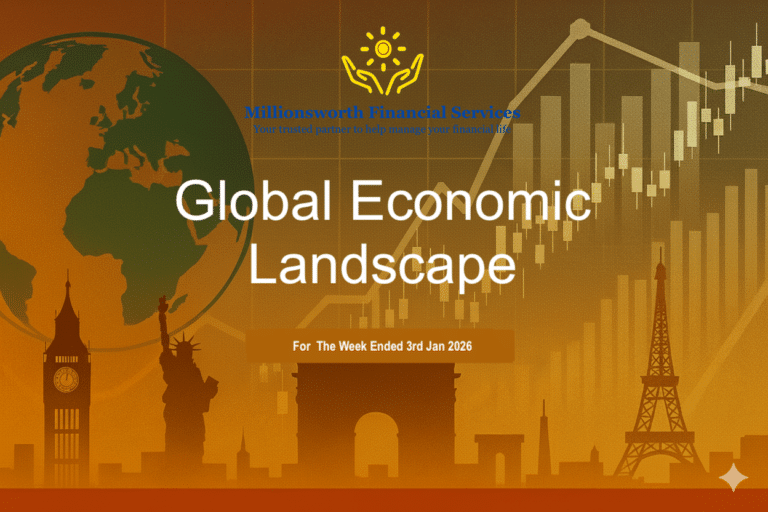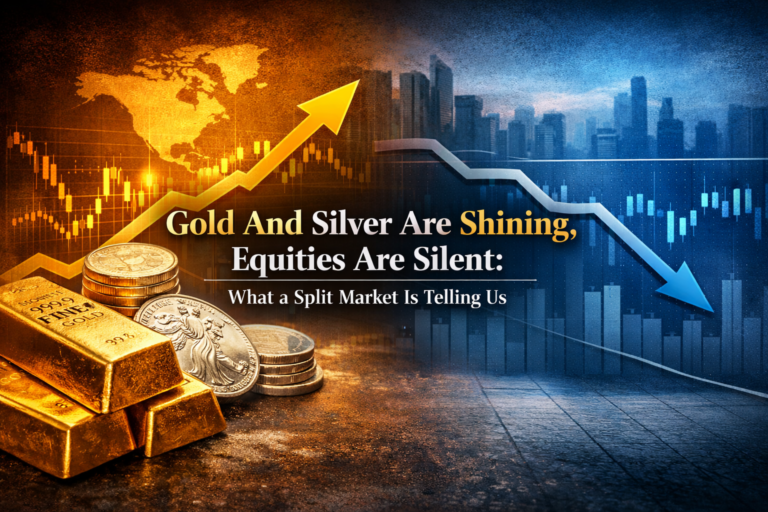The recent market environment has been unsettling for many investors. With global headlines driving sharp market reactions, it’s natural to feel anxious and question whether to take action. But in times like these, maintaining discipline often proves more rewarding than reacting impulsively.
On April 2nd, the U.S. administration announced a fresh round of tariffs, prompting an immediate global response. China, in retaliation, imposed a 34% tariff on U.S. imports and restricted exports of rare earth materials. The resulting uncertainty triggered a swift correction — U.S. markets fell by 6% in a single day and declined by over 10% in just two trading sessions.

This “risk-off” sentiment spilled over to global equities, including Indian markets, which also witnessed a sharp decline. However, it’s important to note that India has shown relative resilience compared to global peers. The country’s limited direct exposure to these tariffs and the strength of its domestic consumption story have helped cushion the impact.
Export-oriented sectors such as electronics manufacturing services (EMS) stand to benefit in the long term, especially as global supply chains diversify. Additionally, India’s diplomatic approach — including tariff reductions on U.S. imports and increased energy purchases — reflects a willingness to maintain balanced trade relations.
That said, certain risks persist. The second-order effects of a prolonged trade conflict could lead to a broader global slowdown and delay investment cycles. Escalation by other nations could further intensify volatility.
Despite these concerns, opportunities are emerging. Large-cap valuations are now looking attractive, even as mid- and small-cap stocks remain above long-term averages. For long-term investors, equities continue to play a central role in wealth creation.

Source: Bloomberg, DSP. Data As of Mar 2025. Nifty 500 Index considered
In such an environment, diversification remains your strongest ally. A mix of asset classes aligned with your long-term goals can help reduce the impact of short-term market movements. The current phase doesn’t call for exiting equities—it calls for discipline and patience.
It’s easy to feel the urge to “do something” when markets are turbulent. However, reacting out of fear rarely adds long-term value. In fact, it often leads to missed opportunities or locked-in losses.
We strongly believe that, sometimes, the wisest action is inaction:
– Let your asset allocation do the work it was designed for.
– Let time and compounding reward your patience.
– Let volatility play its part as a natural phase of investing, not as a signal to panic.
Markets rarely move in a straight line. They pause, they pull back, and then they move forward. Predicting every twist and turn is impossible. But staying aligned with your financial plan is entirely within your control.
Staying invested is not passive — it’s a conscious, strategic decision. One rooted not in reaction, but in long-term conviction.
If you’d like to revisit your portfolio or talk through your plan during this phase, We’d be glad to help. These moments test our patience, but they also offer the chance to reaffirm our strategy and stay focused on what truly matters — your long-term financial wellbeing.


